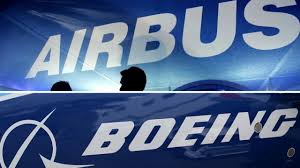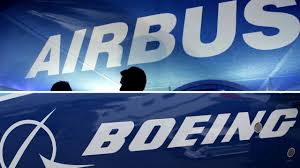
According to industry experts, the reason why Airbus is not elated because of the fiasco that Boeing is facing over its 737 Max is partly because the jet is similar to Airbus’s record-selling A320neo in terms of following strategies of engine efficiencies. This is also perhaps the reason why Airbus is not advantage of the debacle at Boeing over the jest.
Confidence of the successful emergence of Boeing form the crisis facing it after two deadly crashes of its 737 Max jets had been expressed by Airbus along with other major airlines. Analysts say one of the reasons for such optimist is because both the companies have an inherent interest in upholding public trust. Both the companies have almost never competed against each other on issues of flight safety.
“This is not good for aviation,” new Airbus CEO Guillaume Faury said of the MAX crisis earlier this month.
And according to strategists and industry officials, the reason why the two companies are not likely to become very competitive over the crisis and the future of the MAX in addition to their fierce day-to-day competition is because of the history of the MAX and its competitor, the Airbus A320neo.
In the market for single-aisle jets that Airbus values at $3.5 trillion over 20 years, it more or less plats a equal duopoly with Boeing. None of the companies can compete too much on price without undertaking losses on the planes as the profits from those models is critically dependent on volumes.
If Boeing is forced to replace the MAX, it would destabilize the duopoly. In addition, analysts believe that the current time is not ideal for the two companies engaging in a race for technology in this critical market zone.
Earlier this decade, the use of lightweight carbon-composite materials was widened by plane makers with Boeing leading the way. That was followed by some very significant developments in engine technology by the engine makers. Any new technology would mostly involve employing artificial intelligence and automation in the cockpits but achieving that is still some time away.
“The technology for major new steps in materials, engines and piloting are not there right now. It is not the best time for either side to destabilize the market and launch a new single-aisle plane,” a senior industry strategist was recently quoted by Reuters as saying.
Added to this is the huge investments that have already been made by suppliers, banks and manufacturers, and the need for them to preserve sale values of planes that are already in operations. This means that there are few who are currently ready to get into another technology race.
“Industrially and competitively it is logical in a duopoly that you need a reasonably strong competition,” said Rob Morris, head consultant at UK-based aerospace advisers Flight Ascend.
There is little capacity left with Airbus for increasing outputs in the short term despite reports of some Boeing customers already approaching the company in public. Some analysts view such moves to be a strategy for extracting better negotiation terms from Boeing.
(Sourec:www.reuters.com)
Confidence of the successful emergence of Boeing form the crisis facing it after two deadly crashes of its 737 Max jets had been expressed by Airbus along with other major airlines. Analysts say one of the reasons for such optimist is because both the companies have an inherent interest in upholding public trust. Both the companies have almost never competed against each other on issues of flight safety.
“This is not good for aviation,” new Airbus CEO Guillaume Faury said of the MAX crisis earlier this month.
And according to strategists and industry officials, the reason why the two companies are not likely to become very competitive over the crisis and the future of the MAX in addition to their fierce day-to-day competition is because of the history of the MAX and its competitor, the Airbus A320neo.
In the market for single-aisle jets that Airbus values at $3.5 trillion over 20 years, it more or less plats a equal duopoly with Boeing. None of the companies can compete too much on price without undertaking losses on the planes as the profits from those models is critically dependent on volumes.
If Boeing is forced to replace the MAX, it would destabilize the duopoly. In addition, analysts believe that the current time is not ideal for the two companies engaging in a race for technology in this critical market zone.
Earlier this decade, the use of lightweight carbon-composite materials was widened by plane makers with Boeing leading the way. That was followed by some very significant developments in engine technology by the engine makers. Any new technology would mostly involve employing artificial intelligence and automation in the cockpits but achieving that is still some time away.
“The technology for major new steps in materials, engines and piloting are not there right now. It is not the best time for either side to destabilize the market and launch a new single-aisle plane,” a senior industry strategist was recently quoted by Reuters as saying.
Added to this is the huge investments that have already been made by suppliers, banks and manufacturers, and the need for them to preserve sale values of planes that are already in operations. This means that there are few who are currently ready to get into another technology race.
“Industrially and competitively it is logical in a duopoly that you need a reasonably strong competition,” said Rob Morris, head consultant at UK-based aerospace advisers Flight Ascend.
There is little capacity left with Airbus for increasing outputs in the short term despite reports of some Boeing customers already approaching the company in public. Some analysts view such moves to be a strategy for extracting better negotiation terms from Boeing.
(Sourec:www.reuters.com)





